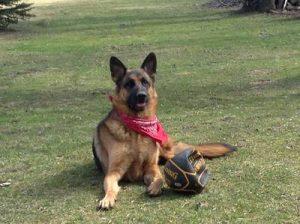
Did you know that according to the Association for Pet Obesity Prevention (APOP), more that 56% of dogs and 60% of cats are classified as overweight or obese. If you are looking at your pet and wondering if it is overweight, here are some things you can check:
- Can you feel the ribs and spine? On an ideal body type you should be able to feel the ribs and spine with a little layer of tissue over it.
- Does he have an hourglass figure? You should be able to see and feel your pet’s waist. It should be clearly visible when viewed from above.
- You should also be able to see the tummy tucked up when viewed from the side.
You may be thinking, “So what? My animal is overweight; there is just more of him to love.” This may be the case; however, pet obesity can cause some serious health problems, and make existing ones worse, which can reduce your beloved pet’s life span and decrease his quality of life. Some conditions are:
- Diabetes
- Heart disease
- Respiratory compromise (difficulty breathing)
- Exercise intolerance
- Osteoarthritis (lameness, joint pain etc.)
- High blood pressure
- Increased anesthetic risks
- Lower immune function
- Cancer
Your Vet may have told you that “Fluffy” should lose a little bit of weight, but did you know that for cats and small dogs 1 lb overweight = 10 lbs overweight for humans? For large breed dogs 1 lb overweight = 5 lbs overweight on a human? Even if Fluffy is only 5 lbs overweight (if we think about it in human weight), Fluffy would be a 50 lb overweight human!
Did you know that a 20lb dog eating one hot dog is equivalent to a 5’4″ person eating 3 hamburgers? What may not seem like a lot adds up for our pets!
What is the next step for losing weight?
*Feed a specific weight loss food to guarantee the appropriate amount of nutrients, as decreasing regular food could be depriving your pet of its dietary needs.
* Increase exercise slowly
- More frequent walks
- Hiding daily food food portion throughout the house to encourage their hunting instinct
- Throw treats of toys up stairs
- Use food toys or puzzles
* Decrease food intake
- With measured meals
- Keep a food diary
- use a portion of meals as treats for the day
*Consult your Veterinarian with any questions
If you have any questions or concerns about your pet’s weight, talk to one of our team members at Mitchell Veterinary Services or Pauly Veterinary Clinic.
